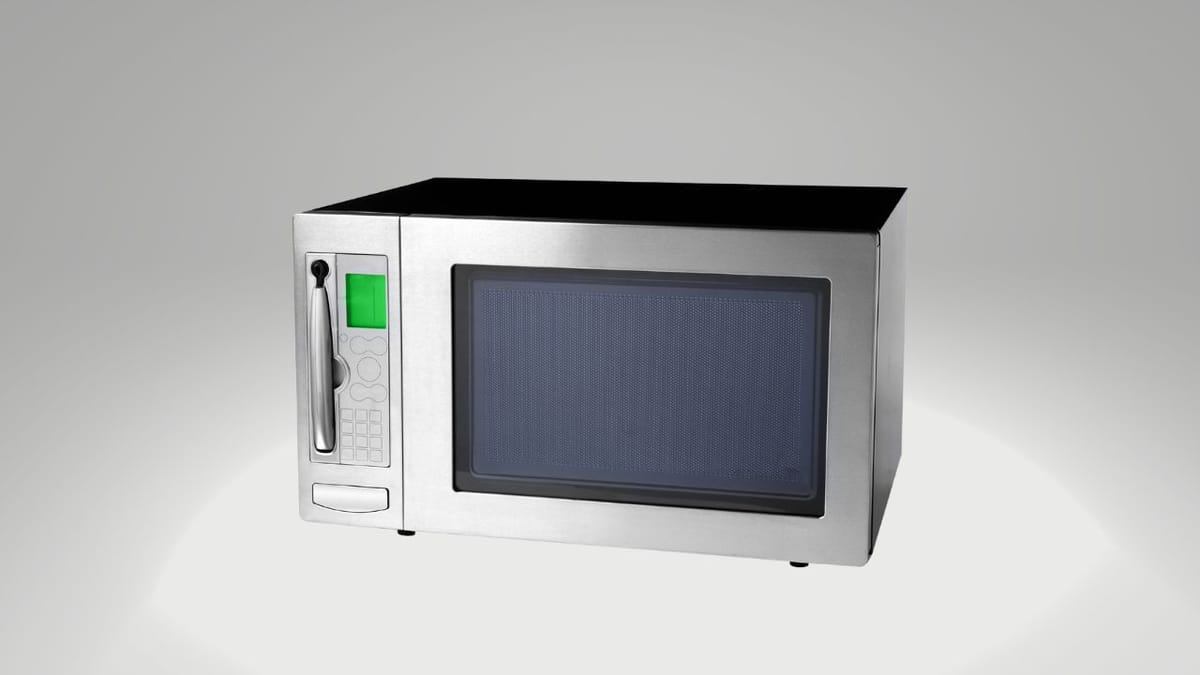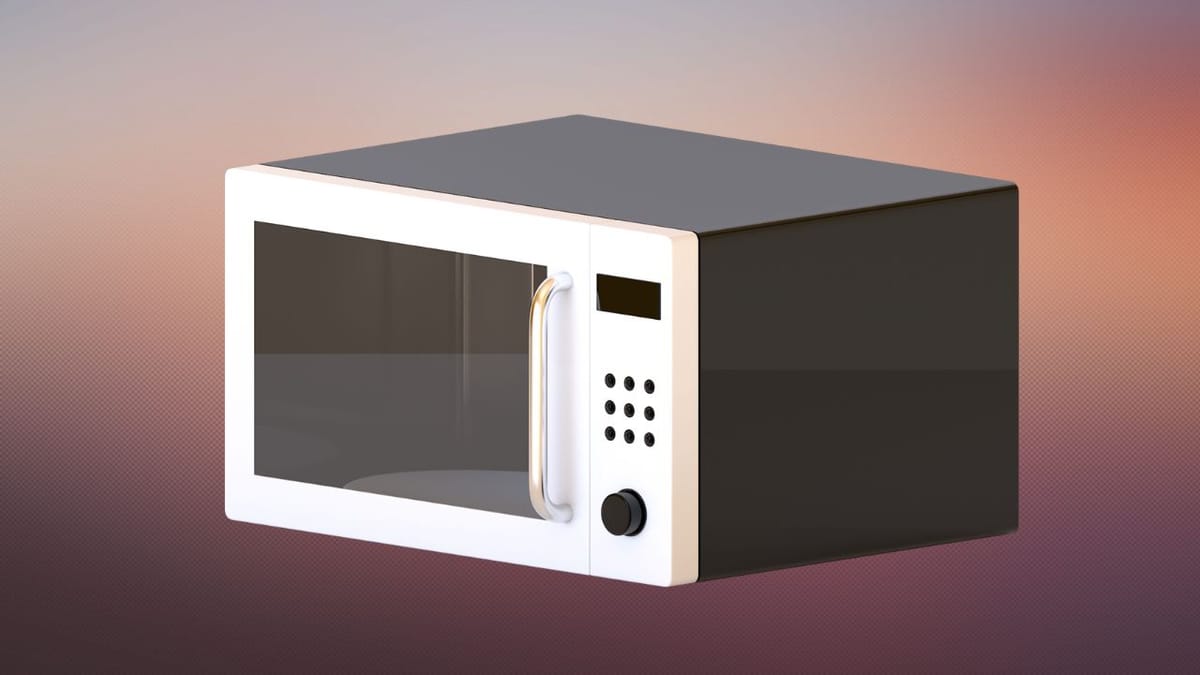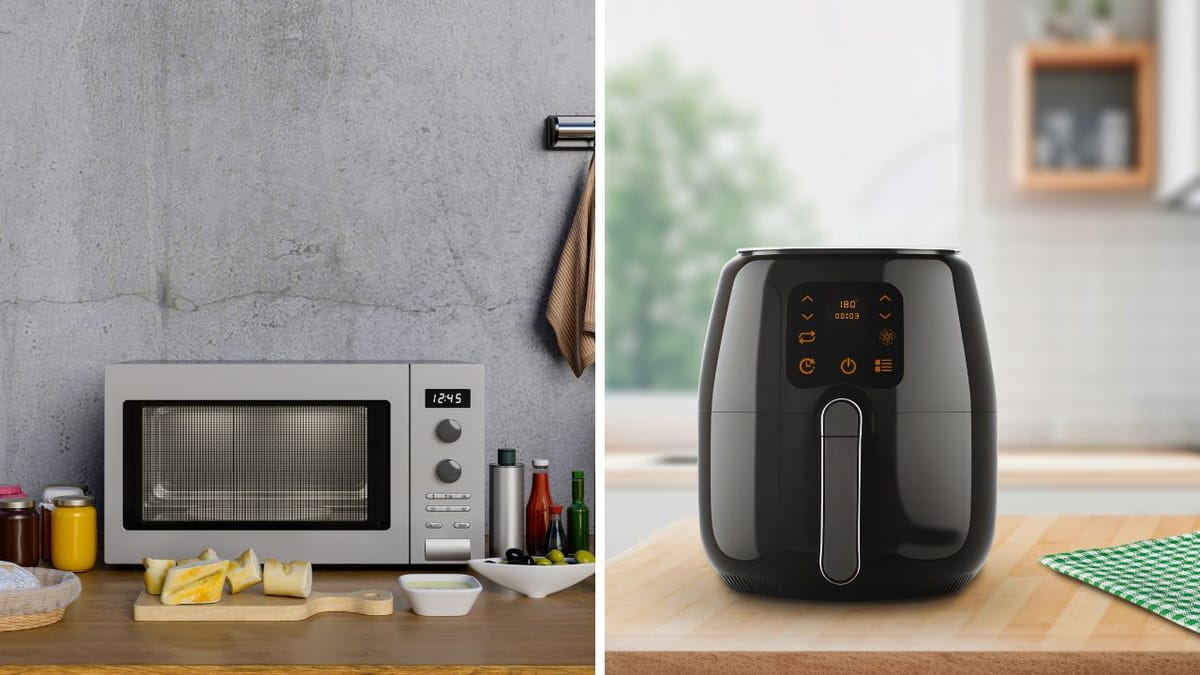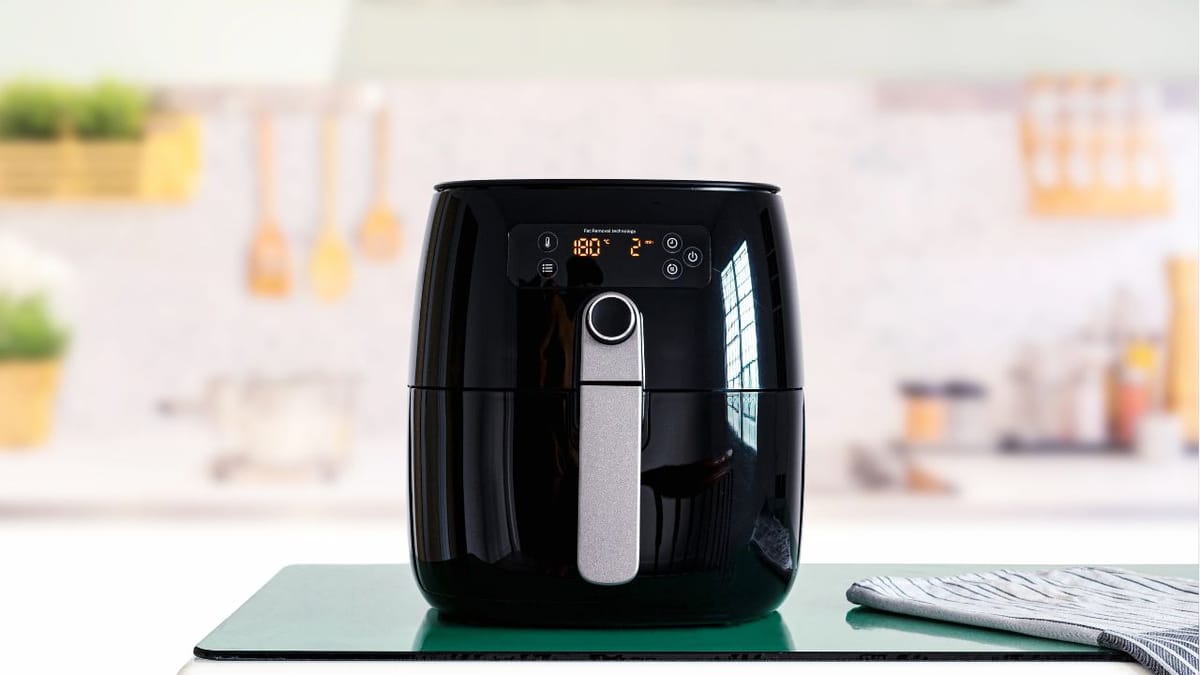Table of Contents
Key Takeaways:
- Understanding the distinct functionalities of microwaves and air fryers can guide you in deciding whether you need both appliances.
- Air fryers offer a healthier cooking method by using less oil, but microwaves are unparalleled in their speed and convenience for certain tasks.
- Assessing your cooking habits and kitchen space can help determine if owning both a microwave and an air fryer is beneficial for your lifestyle.
- Finally, why not purchase a microwave air fryer combo and get the best of both worlds
With detailed and rigorous research, we provide our readers with the finest recommendations. Our recommendations are our opinions. Our cause is backed by reader support- for every click made through one of our affiliates links, a commission may be earned at no extra expense to you! As an Amazon Associate, Reviewsopedia may earn a commission from qualifying purchases. Thank you and enjoy!
The Essentials of Microwaves and Air Fryers
Microwaves have been a staple in kitchens for decades, renowned for their ability to quickly heat and cook food using electromagnetic radiation. They excel at tasks like reheating leftovers, defrosting meats, and popping popcorn. On the other hand, air fryers are a relatively new invention that has gained popularity for their ability to cook food with the taste and texture of deep frying, but with significantly less oil. They work by circulating hot air around the food, creating a crispy exterior.
Comparing Cooking Methods
When it comes to cooking methods, microwaves and air fryers are on opposite ends of the spectrum. Microwaves use radiation to vibrate water molecules in food, causing friction and heat, which cooks the food from the inside out. This method is incredibly fast but can sometimes lead to uneven cooking. Air fryers use convection, blowing hot air around the food, which cooks it evenly and gives it a desirable crispy texture. This method takes longer than microwaving but is often preferred for taste and texture.
The Health Factor
Health-conscious individuals might lean towards an air fryer due to its minimal oil requirement. This appliance can mimic the results of deep-frying without the associated health risks of cooking with large amounts of oil. Microwaves don't require oil for cooking, but they don't offer the same fried texture that many people crave. If your diet focuses on low-fat meals, an air fryer could be a more suitable choice.
Speed and Convenience
When it comes to speed, microwaves are the clear winner. They can heat food in a matter of minutes, sometimes seconds, which is perfect for those with a busy lifestyle. Air fryers, while faster than traditional ovens, still require more time to cook food thoroughly. If your priority is quick meal prep, a microwave might be indispensable in your kitchen.
Versatility in Cooking
Air fryers are versatile in that they can roast, grill, and even bake, offering a range of cooking options that can replace several kitchen appliances. However, microwaves can also cook a variety of foods and are particularly good at tasks like softening butter, melting chocolate, and even making small batches of steamed vegetables or rice. Depending on the range of dishes you prepare, you might find one more versatile than the other.
Kitchen Space Considerations
Kitchen space is a premium commodity in many homes. If you have a small kitchen, you might need to choose between a microwave and an air fryer. Air fryers tend to be bulkier and might take up more counter space. In contrast, microwaves can often be found in compact sizes or even built into cabinetry, saving precious counter space.
Energy Efficiency
In terms of energy efficiency, microwaves are generally more economical than air fryers. They use less electricity because they cook food faster and don't require preheating. If energy consumption and lower utility bills are important to you, a microwave might be the more eco-friendly and cost-effective option.
The Taste and Texture Equation
For many, the decision between a microwave and an air fryer comes down to the desired taste and texture of the food. Air fryers are celebrated for providing a crispy, fried texture without the grease. Microwaves can sometimes leave food soggy or rubbery, which is less than ideal for those who are particular about the crunch in their cuisine.
The Price Point
Price can be a deciding factor when choosing kitchen appliances. Generally, microwaves can be found at a lower price point than air fryers, especially if you're looking at basic models. However, high-end microwaves with convection capabilities can be as expensive as, or more so than, air fryers. It's important to consider your budget alongside your cooking needs.
Making the Decision
Ultimately, whether you need a microwave if you have an air fryer comes down to your personal cooking habits, preferences, and kitchen space. If you value quick and convenient heating, a microwave is indispensable. If you prefer healthier, crispy food and don't mind the extra cooking time, an air fryer might suffice. For many, having both appliances allows for the greatest flexibility and variety in cooking methods.
Summary
Deciding between a microwave and an air fryer, or determining if you need both, depends on several factors including cooking methods, health considerations, speed, versatility, kitchen space, energy efficiency, taste preferences, and price. While microwaves offer unmatched speed and convenience, air fryers provide a healthier alternative to frying with less oil. Assess your cooking habits and kitchen space to make the best choice for your lifestyle. Finally, a microwave air fryer combo can give you the best of both kitchen applicance in one.
FAQ Section
Can an air fryer replace a microwave?
An air fryer cannot completely replace a microwave, as they serve different purposes. Microwaves are best for reheating and quick cooking, while air fryers are better for achieving a fried texture and cooking with less oil.
Is it worth having both a microwave and an air fryer?
It can be worth having both if you have the space and budget, as they offer different benefits. A microwave is great for speed and convenience, while an air fryer provides healthier cooking options with a desirable texture.
Which is more energy-efficient, a microwave or an air fryer?
Microwaves are typically more energy-efficient because they cook food faster and don't require preheating, leading to less electricity usage compared to air fryers.
Other Related Articles



















